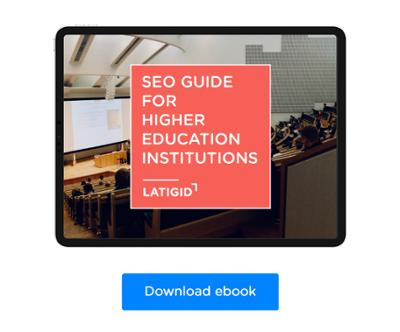
With the increased interest from students in pursuing a degree abroad, higher education institutions have gained a new challenge – international recruitment.
Nowadays, with the popularity of international and online studies (mainly driven by the pandemic), universities need to cater their information in a way that is accessible and comprehensible to everyone, no matter where they’re from. In a recent, extensive study from 2022, it was clearly shown that when it comes to international student recruitment, not every country can be treated the same. Each region has its preferences, from the way they prefer to be sent information and the importance of different graduate outcomes to the factors they consider crucial when choosing a university to enroll in.
This, however, doesn’t mean that your institution has to cater to every region in the world, nonetheless, to make the most out of an international recruiting strategy, identifying your target market and understanding what’s the most effective way to reach them, will bring a very positive ROI (Return on Investment).
In this article, we will go over the main conclusions of that study as well as give some of the best practices according to different regions.
About the study
- The study had 110.306 responses;
- 94 institutions participated;
- 194 countries and territories represented.
Is being online enough?
There is a continuing reliance on online resources that can be found globally and in almost every institution, however, the value that different places attach to these resources varies.
Respondents from Africa tended to place a slightly larger dependence on online resources, despite there being a noticeable fall to 33 percent from 48 percent last year, even though the majority of respondents indicated they saw online and offline resources as being equally important. On the flip side, however, as many as 16 percent of respondents from Asia preferred offline sources, when searching for an institution to enroll in.
None of these statistics should be disregarded, as both Africa and Asia are very significant markets for international student recruitment.
If perhaps, your goal is to recruit students from Africa, it is essential to have an up-to-date, easy-to-navigate website with all the information international students need to make a decision.
If you’re more interested in targeting Asian students, then having a great website probably won’t be enough. Higher Education fairs abroad, university and campus tours, and having the possibility to talk with alumni will help these students make the right decision.
Recommended article: How can your University website help you generate more leads.
Preferred methods to research universities online
While online research enables connections between potential international students and institutions, many prospective students still prefer in-person contact with a university representative, such as a student ambassador or advisor.
Many people feel they can benefit from this type of connection by developing a better sense of the university and receiving more individualized support, however, this is not realistic for a lot of international students, especially those at the top of the funnel.
According to the study, these were the respondent's preferred methods to research universities online:
- University website (84%);
- University virtual open days (56%);
- University social media (42%);
- Digital university prospectus (36%);
- 1-2-1 virtual chats with university advisor or agent (23%);
- Chatting online to current university students.
Overall it was found that university websites were the student’s preferred online source to research about the university, followed by virtual open days and social media.
Again, Asian and African respondents stood out because a higher percentage of them viewed the university website and virtual open days as being very important.
Therefore, it is becoming more crucial not to disregard any of these since potential students from these locations increasingly rely on a wide range of online resources, partly as a result of their limited access to offline resources like open days and university fairs.
Is social media important for international student recruitment?
Every year, social media becomes more relevant as a way to get information, to the point that 1/3 of the study participants now consider social media to be either necessary or very significant while looking into institutions.
According to the study, these were the respondent's preferred social media platforms to use when researching for universities online:
- Youtube (60%)
- Instagram (50%)
- Internet Forums (i.e. The Student Room) (40%)
- LinkedIn (38%)
- Facebook (34%)
- Twitter (12%)
- Reddit (11%)
- TikTok (10%)
- WeChat (Weixin) (6%)
- Weibo (5%)
- IGTV (5%)
- Pinterest (4%)
- SnapChat (3%)
- Youku (1%)
Remarkably, the study showed that the United States and Canada have the biggest proportion of non-adopters of social media (48%), contrary to Latin America, which has the lowest (25%).
It was also found that each social media platform popularity differs by country, with LinkedIn being the most popular in the US and Canada (32%) and in Asia (15%). Despite Youtube being the most popular platform among students, in Africa only 11% of the respondents actually use it.
These last statistics alone could be enough to prove that what works in one country might not work in others. When deciding on which market you want to enter, it is very important to study its online behaviours before deciding on a marketing and/or recruitment strategy, to make sure the efforts, human resources, and money invested into it, bring good results to your institution.
If you need help creating a digital marketing strategy for your higher education institution don’t hesitate, talk to us.




